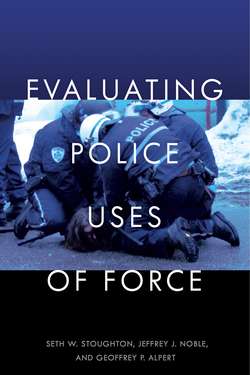Читать книгу Evaluating Police Uses of Force - Seth W. Stoughton - Страница 43
На сайте Литреса книга снята с продажи.
Civil (Tort) Law
ОглавлениеImagine a car crash. Vehicle 1 crashes into Vehicle 2, which was sitting stationary at a red light. The driver of Vehicle 2 sues the driver of Vehicle 1, demanding compensation for their personal injuries and damaged property. That lawsuit is civil, not criminal; it is brought by a private plaintiff, not by a prosecutor, and the goal is to compensate the victim for the harms they’ve suffered, not to criminally convict the at-fault driver. The driver of Vehicle 2 can file a civil lawsuit regardless of whether the driver of Vehicle 1 is criminally prosecuted. That civil lawsuit does not allege any breach of contract or, indeed, any pre-existing relationship between the drivers of Vehicle 1 and Vehicle 2. Instead, the underlying claim in the lawsuit is that the driver of Vehicle 1 has committed a “tort” (alternatively, a “tortious act”). According to Black’s Law Dictionary, “tort” is used “to denote a wrong or wrongful act, for which an action will lie [that is, for which someone may sue], as distinguished from a contract.”
State tort suits against police officers are civil allegations of wrongdoing, typically filed for the purpose of obtaining money damages as compensatory relief. Confusingly, issues of state tort law can come up in both state and federal courts. A litigant can file a lawsuit in federal court that alleges that a local police officer violated both state and federal law. If a litigant files a lawsuit in state court that lays out a claim under federal law—such as a violation of 42 U.S.C § 1983, discussed in chapter 1—the defendant officer can “remove” the case to federal court, bringing any state law claims along with it.10 When a litigant sues a federal agent in state court alleging violations of state law, the federal agent can similarly remove the case to federal court.11 Under either of the last two scenarios, the federal court will preside over both the federal and state law claims. Regardless of whether the case is heard before a federal or state judge, though, the court will rely on state law, including existing state precedent, to analyze the state law claims.
